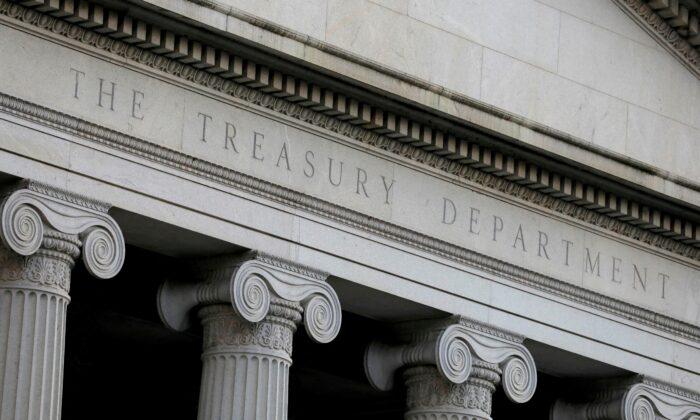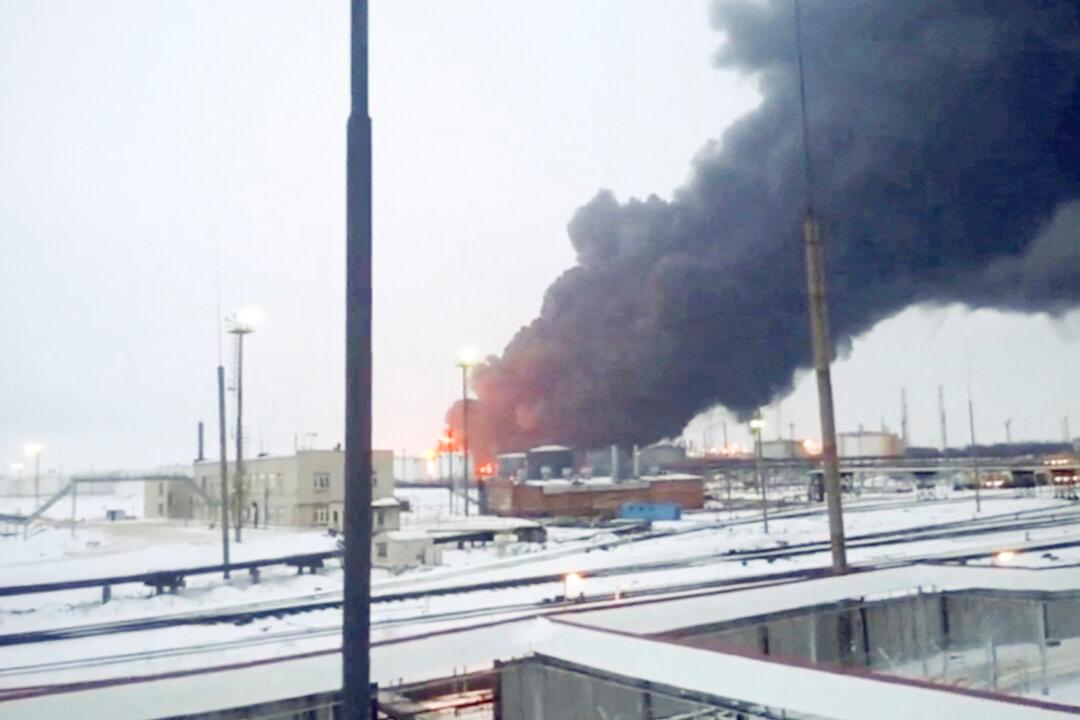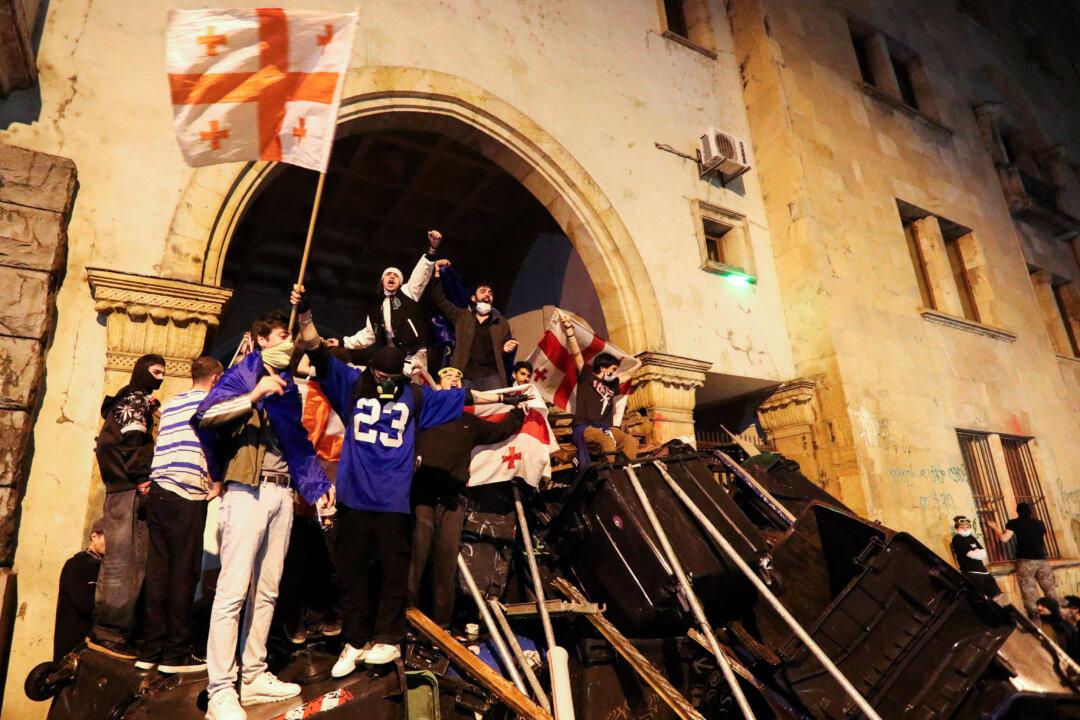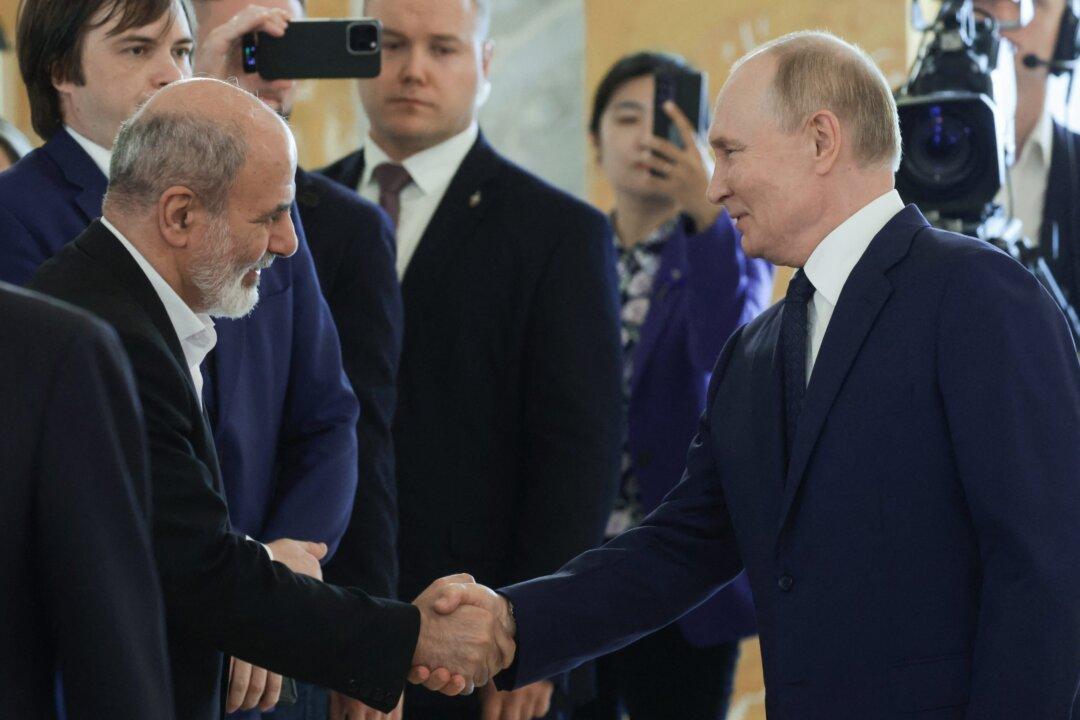The United States has enacted a wide-ranging package of fresh economic sanctions against more than 120 Russia-linked companies and individuals—several of them in third countries.
“The United States will continue to take action against Russia and those supporting its war in Ukraine,” Secretary of State Antony Blinken said in a statement on April 12.
Blinken says the move reflects the Group of 7’s “commitment to impose severe consequences on third-country actors” who support Russia’s invasion of Ukraine, now in its second year.
The Group of 7 (G-7) is an intergovernmental political forum comprised of the United States, Britain, Canada, France, Germany, Italy, and Japan.
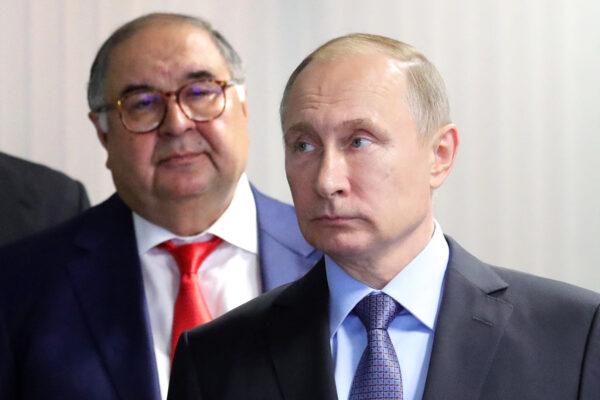
All G-7 members are staunch supporters of Kyiv, and all but Japan are members of the Western NATO alliance.
Russia launched its invasion early last year with the stated aim of protecting Russian speakers in Ukraine and halting the eastward expansion of NATO. Kyiv and its allies regard the move as an unjustified war of conquest.
Anatoly Antonov, Moscow’s ambassador to the United States, said the fresh round of sanctions is an act of desperation.
Russian Telecoms Targeted
The latest sanctions on Russia-linked entities were enacted by the U.S. Treasury and State departments in conjunction with the UK government.A primary focus of the sanctions is Russian Uzbek businessman Alisher Usmanov, who, according to the Treasury Department, commands “a wide network of businesses ... through which to conduct financial transactions, enabling him to potentially circumvent sanctions.”
The sanctions also target USM Holdings, which is owned by Usmanov, along with several subsidiary companies. They include an Uzbekistan-based cement company and a Russian iron producer with subsidiaries in Switzerland and the United Arab Emirates.
The sanctions also target the USM-owned MegaFon, a Russian telecommunications company.
The move represents the first time that U.S. authorities have imposed sanctions on Russia’s telecommunications infrastructure.
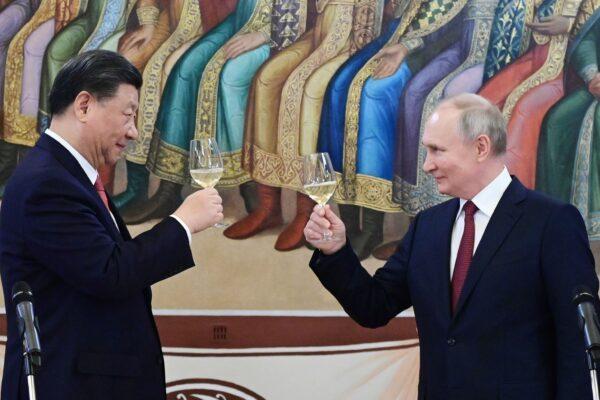
“We are a commercial company providing millions of clients with services of high social significance,” MegaFon said in an April 13 statement cited by Russia’s TASS news agency.
“We will dispute these restrictions by all means available to us.”
The fresh raft of sanctions also affects a private Russian military company that Washington says is associated with Russian Defense Minister Sergei Shoigu.
In January, Washington expanded sanctions on the Wagner Group, another Kremlin-linked military company that has spearheaded the recent fighting in Ukraine.
The latest sanctions also target five entities affiliated with Russia’s state-owned nuclear energy firm Rosatom. Washington accuses the company of using energy exports to exert political and economic pressure on foreign customers.
3rd Countries Not Immune
The latest raft of U.S.-led sanctions also takes aim at several companies operating outside Russia’s borders. They include the Budapest-based International Investment Bank, the majority of which is Russian-owned, and three current or former company executives.According to the Treasury Department, the bank’s presence in Hungary allows Russia “to increase its intelligence presence in Europe ... and could serve as a mechanism for corruption and illicit finance, including sanctions violations.”
Sanctions were also imposed on Sequoia Treuhand Trust Reg, a Liechtenstein-based trust services firm that caters to high-worth Russian clients, according to the Treasury Department.
Two China-based technology firms were also included in the latest sanctions: HEAD Aerospace Technology and King-Pai Technology HK.
According to Washington, the former supplies the Russian military with satellite imagery of locations in Ukraine, while the latter provides technological components to Russia’s military-industrial complex.
Recent weeks have seen deepening ties between Russia and China.
Last month, Chinese leader Xi Jinping made a three-day visit to Moscow, where he signed a number of cooperation agreements with Russian President Vladimir Putin.
The new sanctions package also targets four Turkey-based companies, which Washington accuses of violating U.S. export controls and aiding the Russian war effort. Washington claims that at least two of the firms helped transfer “dual-use” goods—goods that have military applications—to Russia.
The move is the most significant U.S. sanctions-enforcement action in Turkey, a longstanding NATO member since the Russia-Ukraine conflict began early last year.
While Ankara has condemned Moscow’s invasion of Ukraine, it has also sought to maintain good relations with Russia, with which it shares extensive trade ties.
Antonov says the latest round of Western sanctions is intended to “complicate the interactions of third countries with Russian counterparties.”
He went on to assert that the move would only serve to “further damage the United States’ business reputation in the eyes of the world.”
